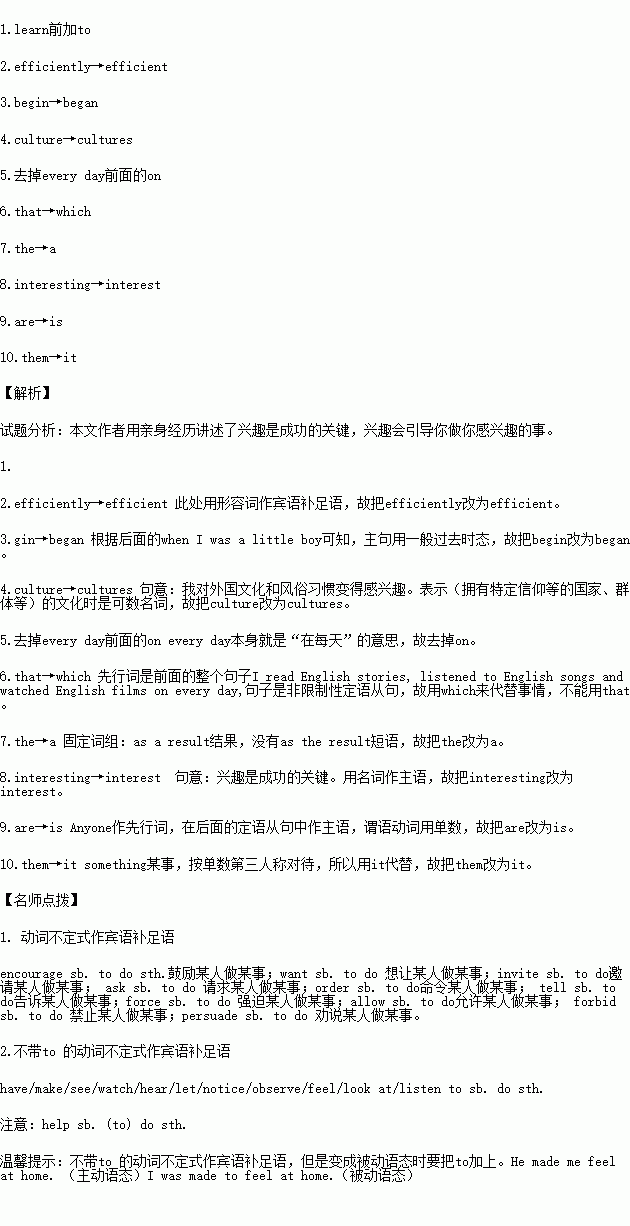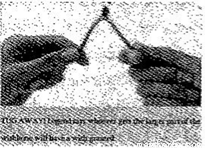When I was young at school, I loved to talk, a characteristic not always appreciated by Miss Jordan, my tenth-grade English teacher.
She was a teacher no one wanted because she was so ________. She stood about five-foot-five, was very thin and wore her hair pulled back in a way that gave her a horsy ________. She wore those half-circular reading glasses. Whenever she got upset, she would lower her head and look at you over the top of her glasses.
One day in her class I was busy talking. I didn’t ________ she had stopped teaching and was ________ straight at me. “Young lady, I would like to see you after school.”
Later Miss Jordan ________ in a low, but very firm voice that showed she expected me to listen when she was talking. For ________ she told me to write a thousand word essay on education and its effect on the economy(经济). She wanted it in by the following Wednesday.
Well, I met my deadline. I was ________. It was a good paper. And I expected a sign of ________ from her. The next day in class, ________, she was looking at me over her glasses. She called me forward and ________ my paper. “Go back and rewrite,” she said. “Remember, each paragraph is supposed to begin with a topic sentence.” When she gave my paper back a second time, she ________ the grammar. The third time, the spelling. The fourth time, it was punctuation. The fifth, it wasn’t neat enough. I was ________!
The sixth time, I rewrote the whole paper ________, in ink, leaving generous space. When she saw it, she removed her glasses and smiled. She finally ________ the paper. After that, I put the whole thing out of my ________.
Two or three months passed. One day Miss Jordan came into the class and said to us: “Class, do you still ________ an essay contest held citywide? They’ve announced the ________. I am happy to inform you that Mary has won third prize in the essay contest —‘On the Impact of Education on the Economy’.”
I was amazed and ________. It was the first time I had ever won a prize. Years later, I told a reporter that story, and my comments—including my unfriendly ________ of Miss Jordan’s appearance. Miss Jordan wrote me, and said that her appearance wasn’t what was important. What was important was the ________ I had learnt. When I wrote and rewrote that paper for her, I began to learn how to discipline myself.
1.A. open-mindedB. strictC. carefulD. cold-hearted
2.A. lookB. shapeC. styleD. character
3.A. guessB. believeC. imagineD. realize
4.A. wavingB. laughingC. staringD. running
5.A. complainedB. whisperedC. explainedD. apologized
6.A. objectionB. motivation
C. punishmentD. encouragement
7.A. confidentB. concernedC. nervousD. helpful
8.A. suggestionB. approvalC. commentD. respect
9.A. otherwiseB. moreoverC. howeverD. therefore
10.A. changedB. toreC. openedD. returned
11.A. masteredB. correctedC. taughtD. identified
12.A. relievedB. gratefulC. relaxedD. sick
13.A. carelesslyB. eagerlyC. vaguelyD. slowly
14.A. publishedB. acceptedC. finishedD. studied
15.A. mindB. listC. questionD. sight
16.A. rememberB. enterC. expectD. organize
17.A. plansB. winnersC. participantsD. names
18.A. curiousB. anxiousC. thrilledD. enthusiastic
19.A. conclusionB. reaction
C. recommendationD. description
20.A. lessonB. meaningC. skillD. result
 阅读快车系列答案
阅读快车系列答案


